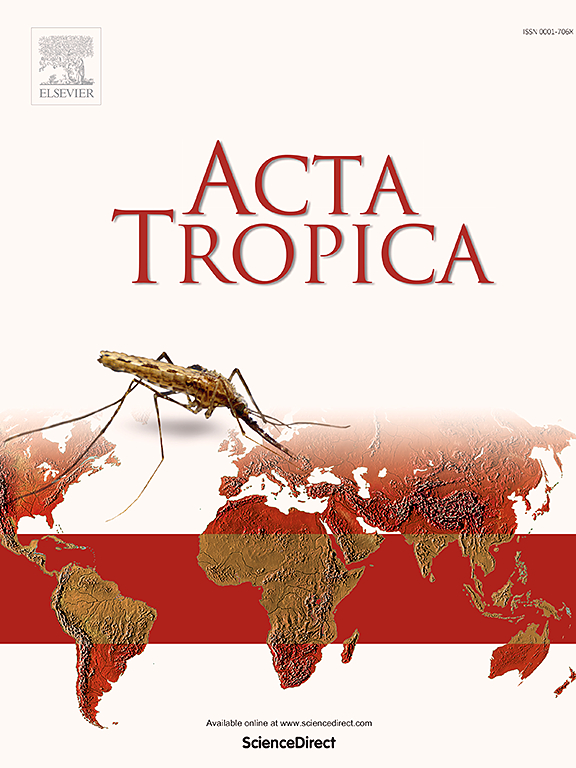Bug as a drug: Unveiling anti-cancer properties of Toxoplasma gondii and its therapeutic prospects in cancer immunotherapy
IF 2.1
3区 医学
Q2 PARASITOLOGY
引用次数: 0
Abstract
In light of the growing global cancer burden, the development of novel therapeutic strategies is urgently needed. Recently, pathogens have been examined for their potential in immunotherapy, with Toxoplasma gondii (T. gondii) emerging as an unexpected yet promising candidate. Given the widespread prevalence of T. gondii, particularly in tropical regions where climatic conditions favor the oocyst transmission, understanding its therapeutic potential may have far-reaching implications for global health. This review explores the potential of T. gondii as a cancer immunotherapy by examining various T. gondii variants characterized in current studies. It highlights the multifaceted mechanisms behind T. gondii's anti-cancer properties, including the induction of Th1 immune responses, immunostimulation of the tumor microenvironment, inhibition of angiogenesis, invasion and metastasis, as well as the induction of cancer cell apoptosis. However, several challenges hinder the application of T. gondii in immunotherapy, such as safety concerns related to viable T. gondii, its limited efficacy against non-solid tumors, and the need for further validation of non-viable T. gondii components. Additionally, the role of humoral immunity and potential synergies with conventional therapies require further investigation. Addressing these challenges could significantly enhance the efficacy and safety of T. gondii-based immunotherapy, offering a novel approach to cancer treatment and potentially improving patient outcomes.
虫作为药物:揭示刚地弓形虫的抗癌特性及其在癌症免疫治疗中的治疗前景
鉴于日益增长的全球癌症负担,迫切需要开发新的治疗策略。最近,人们对病原体在免疫治疗中的潜力进行了研究,刚地弓形虫(弓形虫)作为一种意想不到但有希望的候选者出现。鉴于弓形虫的广泛流行,特别是在气候条件有利于卵囊传播的热带地区,了解其治疗潜力可能对全球卫生产生深远影响。本文通过对目前研究中发现的各种弓形虫变异进行研究,探讨了弓形虫作为一种癌症免疫疗法的潜力。它强调了弓形虫抗癌特性背后的多方面机制,包括诱导Th1免疫应答、免疫刺激肿瘤微环境、抑制血管生成、侵袭和转移以及诱导癌细胞凋亡。然而,一些挑战阻碍了弓形虫在免疫治疗中的应用,例如与活的弓形虫有关的安全性问题,其对非实体肿瘤的有限疗效,以及需要进一步验证非活的弓形虫成分。此外,体液免疫的作用以及与常规疗法的潜在协同作用需要进一步研究。解决这些挑战可以显著提高基于弓形虫的免疫疗法的有效性和安全性,为癌症治疗提供一种新的方法,并有可能改善患者的预后。
本文章由计算机程序翻译,如有差异,请以英文原文为准。
求助全文
约1分钟内获得全文
求助全文
来源期刊

Acta tropica
医学-寄生虫学
CiteScore
5.40
自引率
11.10%
发文量
383
审稿时长
37 days
期刊介绍:
Acta Tropica, is an international journal on infectious diseases that covers public health sciences and biomedical research with particular emphasis on topics relevant to human and animal health in the tropics and the subtropics.
 求助内容:
求助内容: 应助结果提醒方式:
应助结果提醒方式:


